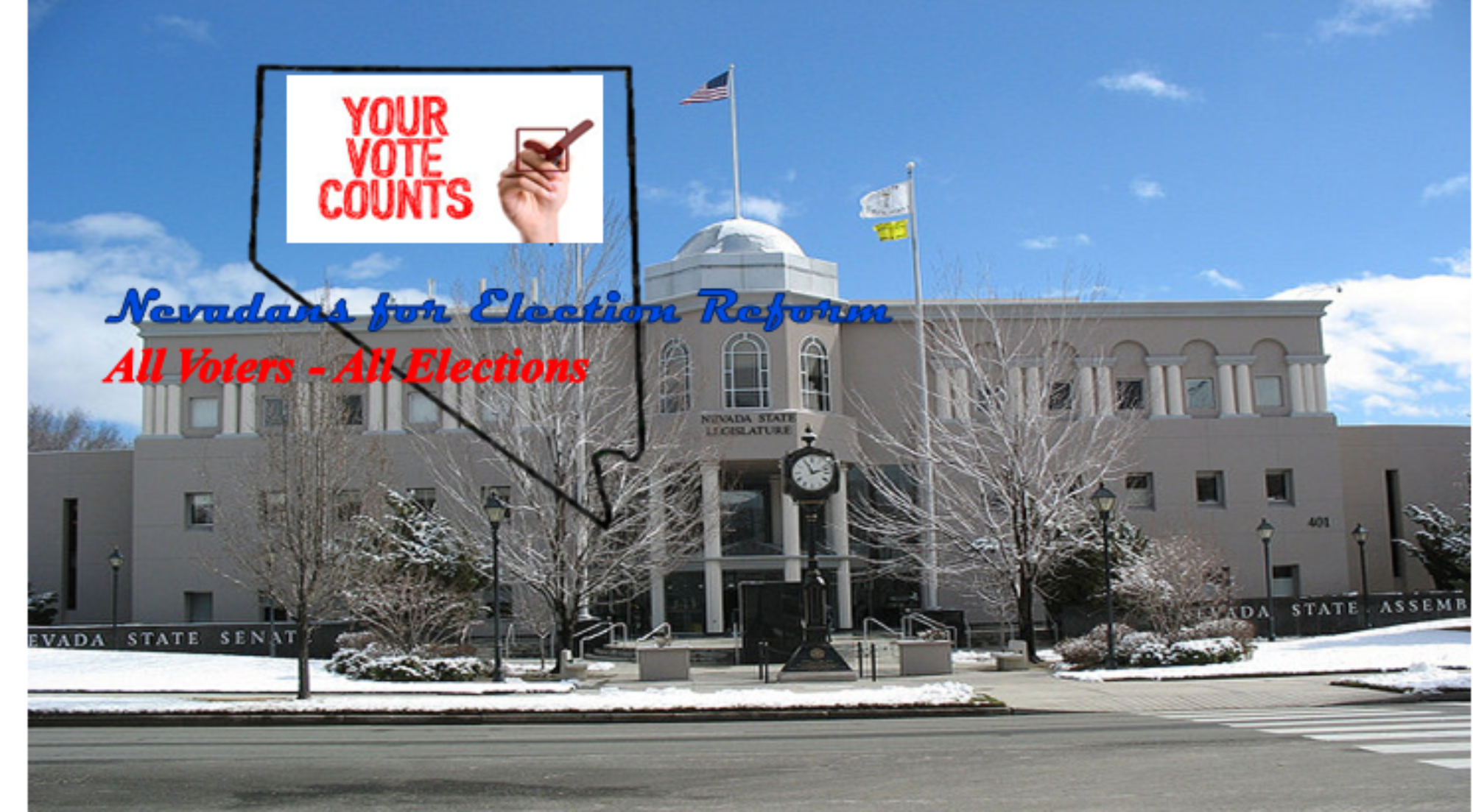By Doug Goodman -Founder & Executive Director Nevadans for Election Reform – June 15, 2023
The 82nd regular session of the Nevada Legislature adjourned sine die at 12:19 A.M. June 6th.
While media rightfully focuses on major or contentious legislation which resulted in most of the party line votes, how partisan was the session?
1,229 BDRs filed
1,066 filed within statutory deadline
163 filed between February 24th to June 2nd
1056 bills and joint resolutions on NELIS
295 died – 27.94%
Of the bills that died at 1st deadline not including committee bills (58)
62 were D – 34.25%
107 were R – 59.12%
12 bipartisan – 6.63%
Bills died with no 1st house vote not including committee bills (2)
4 were D – 50%
3 were R- 37.5%
1 was bipartisan – 12.5%
Bills dying at 2nd house committee not including committee bills (2)
3 were D – 50%
1 was R – 16.67%
2 were bipartisan – 33.33%
First house vote; one party line, five unanimous
Bills dying no 2nd chamber vote not including committee bills (13)
15 D – 60%
7 R – 28%
3 bipartisan – 12%
First house vote; nine party line, 12 unanimous
Of bills that received votes in both chambers
there was a total of 1522 votes
Of those 835 were unanimous – 54.86%
136 were party line – 8.94%
Combining with bills that died with one vote
1568 votes
852 unanimous – 54.34%
145 party line – 9.25%
Election Bills
Unlike the session overall, election related bills faced a more heightened level of partisanship.
36 bills
13 R
None passed
11 did not get hearing
1 passed first chamber, did not get hearing in 2nd
1 Governor bill was exempt, did not get hearing
9 D
6 passed (1 vetoed)
9 heard 1st committee
1 no 1st committee vote
1 not heard 2nd chamber
1 exempt not heard
6 – committee
5 passed
1 no 2nd committee vote
6 – Secretary of State
3 passed
3 no first committee vote
1 – Nevada League of Cities
1 not heard
1 – Office of the Governor
Exempt not heard
How does this compare to other sessions? The last time I did this type of analysis was following the 2015 session. I looked at how that session compared with the previous three, 2009, 2011, 2013. The biggest difference, the percentage of party-line votes. You can read the 2015 report here.
As I write this, partisan differences have resulted in two special sessions. The first dealing with the capital improvement projects (CIP) budget and the second with a bill to provide tax incentives to the Oakland Athletics to bring major league baseball to Las Vegas.
The CIP bill passed but was not complete party line vote. During the regular session it failed to get the necessary votes. The bill to provide public funding to entice the Oakland Athletics to move to Las Vegas did not get a hearing during the regular session. The special session bill passed with both bipartisan support and opposition.
Adding to the tension was another bill, incentives to motion picture industry to build a production studio in Las Vegas. This bill did not get a floor vote.
All three of these bills were introduced the last weeks of the session.
Another point adding to the contentiousness is the legislature’s exemption from the state’s open meeting law. This allows for suspension of rules, behind the bar (on the chamber floor) committee meetings and votes with no public participation, and proceedings held under Committee of the Whole rules where hearings are held in each chamber without public participation. These types of proceedings are most prevalent during the last two weeks of a regular session and common during a special session.
All bills passed have been forwarded to the governor for action. How many will the governor sign, how many will he allow to become law without his signature, and how many will he veto. We will know next week.
